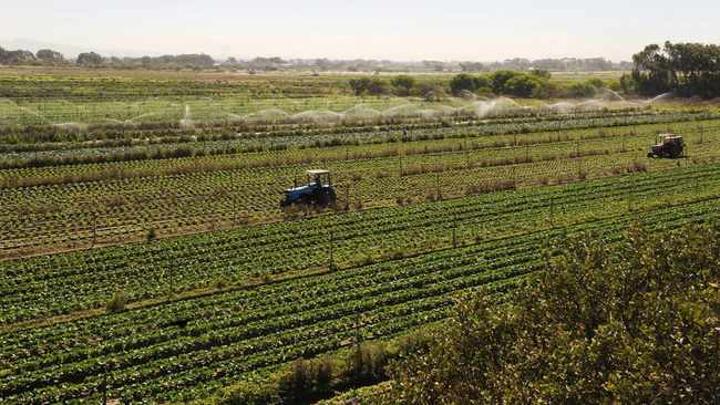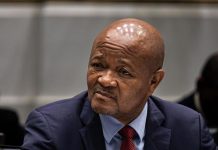Africa-Press – South-Africa. By Wallace Amos Mgoqi
This is the final part of a two part series about restoring dignity to the Khoi-San and their descendants. The first part was published on Thursday.
We cannot afford to repeat the mistakes of the past, such as the very first land claim to have been settled under the Restitution of Land Rights Act No 22 of 1994, as amended.
This claim was settled in 1996, two years after the commencement of the restitution process, by myself as the Regional Land Claims Commissioner for the Western and Northern Cape. The restitution process was driven politically quantitatively, in the sense of it being how many claims were settled over as short a space of time as possible. Consequently, it was about the qualitative aspects of ensuring that there was adequate spatial planning, proper and adequate training of those who were going to use the land, proper and adequate budgeting and resourcing for the needs of the community – an enablement programme.
As a result, those who received the land were involved in internecine conflicts and internal battles, to the detriment of any development – in the case of Elandskloof, near Citrusdal, tragically, for 25 years. Yet they received no less than 200 hectares of land, at the foot of two mountains, with streams of water flowing into a river that runs across the length of the farm, benefiting all the white farmers in the area below, raising citrus fruits.
The Department of Public Works would also have a pivotal role to play in this mega-reparation exercise as the custodian of State land.
There are large tracts of land, including SANDF land, presently lying empty and fallow, which could also be made available to those who would have been trained from the Khoi-San communities, who are willing to use the land productively, profitably and sustainably.
At the dawn of our democracy, here in the Western Cape we learnt of a benevolent farmer who, upon the introduction of the land reform programme, excised a portion of his farm for the benefit of his farmworkers.
He allowed them time to work on it as they did the normal duties on his farm, with some mentoring. The person who did this was one of the eight short-listed candidates to become the new Chief Justice, Mr Allan Nelson. There are many others about whom little is known. As a nation, we have become masters in highlighting the negative things fuelled by a media that does so for nefarious reasons.
More recently, from 2006 to date near Napier, a young Afrikaner farmer, Kosie van Zyl, who had been favoured by an elderly couple who sold him their farm at a hugely discounted price, came across a group of about 30 destitute coloured families, whom he asked how he could show them favour as well and to extend the blessing he had received. They replied that as he knew them to be unskilled and uneducated, all they desired was to be given an opportunity to work on a farm. Little did they know at the time that they would be working on a farm for their own account.
Kosie van Zyl approached the local municipality and negotiated a lease of a 640-hectare farm for rental to be paid at the end of the year, after harvest.
Upon securing the lease agreement, he established a trust as well as a trading company, with 70-30% shareholding between the 30 families, and himself and Pieter Blom, respectively, on the understanding that, as mentors, in the 10th year, they would exit the arrangement and sell back their 30% share to the trust and company, which they did in 2016. He mentored them in growing wheat, barley, oats and canola. Over time, they acquired a second farm, in their name, from the Department of Rural Development and Land Reform, as well as a donation of R8m from Pioneer Foods to buy another farm, which they did, with a house on it that they converted into a guest-house for women to run as a business, as well as a hall which they converted into a hospitality venue to host community events.
The trust also acquired its own tractor, sprayer and harvester which, after using on their farm, they would hire out to neighbouring farmers for additional revenue. They also bought some high-quality cattle from the Eastern Cape as well as some sheep to rear and sell to the meat market.
In eight years, they had revenues totalling R7.3 million – a people who had been destitute, victims of farm evictions, were now able to feed their families, educate their children up to university. Through a process of enablement and mentoring, they were able to turn their misfortunes around. Today they are a shining example of what people can do for themselves with the necessary support and resources they need. Agri-Dwala is the name of the project: www.agri-dwala.co.za.
With small steps like these, we can begin the journey of establishing a society based on democratic values, social justice and fundamental human rights. We must do this work together as a nation. It cannot be left to a few nor to government alone.
Former president Thabo Mbeki was right when he spoke at the handover of restitution land to the Khoi and San at the Kgalagadi and said: “We shall mend the broken strings of the distant past so that our dreams can take root, for the stories of the Khoi and the San have told us that this dream is too big for one person to hold… It is by acting together, by that dreaming together… that we shall, all of us, produce a better life for you who have been the worst victims of oppression… Here is your land. Take it, look after it and thrive on it.”
We can practically demonstrate inclusivity, diversity and equity for a people who for a long time have felt marginalised, and rightly so.
Asserting the right of the Khoi and the San, one of their descendants, a son of the soil, Bra Don Mattera, once made the point quite poignantly: “When the first sun rose,
It found us awake and waiting
Long before they came to this hill
Our footsteps shaped the landscape Tamed the (gemsbok)
We rode the wind
Silenced the hurricane
Look at us,
We have been here before.”
Our children and grandchildren and their grandchildren will look upon us with deep respect for having done this thing.
* Wallace Amos Mgoqi is the chairperson of AYO Technology Solutions
For More News And Analysis About South-Africa Follow Africa-Press






